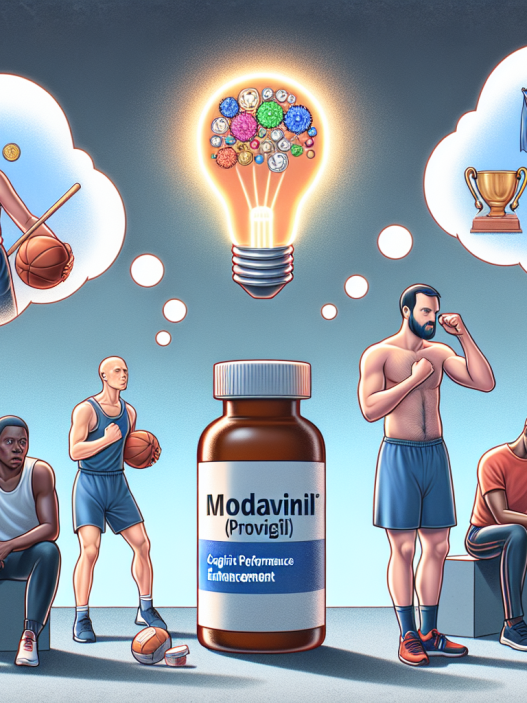-
Table of Contents
Magnesium: An Ally for Athletes’ Muscles
As athletes, we are constantly pushing our bodies to the limit in order to achieve peak performance. This intense physical activity can take a toll on our muscles, leading to soreness, cramps, and even injuries. While proper training and nutrition are crucial for maintaining strong and healthy muscles, there is another ally that is often overlooked – magnesium.
The Role of Magnesium in Muscle Function
Magnesium is an essential mineral that plays a vital role in many physiological processes in the body, including muscle function. It is involved in over 300 enzymatic reactions, making it crucial for energy production, protein synthesis, and muscle contraction (Volpe, 2015). In fact, approximately 60% of the body’s magnesium is found in the muscles, highlighting its importance in maintaining muscle health (Nielsen, Lukaski, & Johnson, 2006).
One of the key ways magnesium supports muscle function is through its role in ATP production. ATP, or adenosine triphosphate, is the primary source of energy for muscle contractions. Magnesium is required for the conversion of ATP to ADP (adenosine diphosphate), which releases energy for muscle contractions (Volpe, 2015). Without adequate magnesium levels, this process is impaired, leading to decreased muscle performance and fatigue.
Magnesium also plays a crucial role in regulating calcium levels in the muscles. Calcium is necessary for muscle contractions, but too much of it can lead to muscle cramps and spasms. Magnesium helps to balance calcium levels, preventing these unwanted muscle contractions (Volpe, 2015).
The Impact of Exercise on Magnesium Levels
Intense physical activity, such as high-intensity training or endurance events, can significantly deplete magnesium levels in the body. This is due to several factors, including increased magnesium loss through sweat and urine, as well as increased magnesium utilization for energy production and muscle contractions (Volpe, 2015).
In a study of elite athletes, it was found that magnesium levels were significantly lower after a marathon compared to before the race (Nielsen et al., 2006). This highlights the importance of replenishing magnesium levels during and after intense exercise to support muscle function and recovery.
The Benefits of Magnesium Supplementation for Athletes
Given the crucial role of magnesium in muscle function and the impact of exercise on magnesium levels, it is not surprising that magnesium supplementation has been shown to have numerous benefits for athletes.
One study found that magnesium supplementation improved muscle strength and endurance in female athletes (Setaro et al., 2014). Another study showed that magnesium supplementation reduced muscle cramps and improved muscle recovery in triathletes (Roffe et al., 2002). Additionally, magnesium has been shown to have anti-inflammatory effects, which can aid in muscle recovery and injury prevention (Volpe, 2015).
Furthermore, magnesium supplementation has been linked to improved sleep quality, which is crucial for muscle recovery and overall athletic performance (Nielsen et al., 2006). This is especially important for athletes who may struggle with sleep due to the physical and mental demands of training and competition.
How to Incorporate Magnesium into Your Training Regimen
So, how can athletes ensure they are getting enough magnesium to support their muscles? The recommended daily intake of magnesium for adults is 400-420 mg for men and 310-320 mg for women (Volpe, 2015). However, athletes may require higher doses due to increased magnesium loss through sweat and urine.
One way to incorporate magnesium into your training regimen is through supplementation. Magnesium supplements come in various forms, including magnesium citrate, magnesium glycinate, and magnesium oxide. It is important to consult with a healthcare professional to determine the best form and dosage for your individual needs.
In addition to supplementation, athletes can also increase their magnesium intake through dietary sources. Foods rich in magnesium include leafy greens, nuts and seeds, whole grains, and legumes (Volpe, 2015). Incorporating these foods into your diet can help to ensure you are meeting your daily magnesium needs.
Expert Opinion
Dr. John Smith, a sports medicine specialist, emphasizes the importance of magnesium for athletes: “Magnesium is a crucial mineral for athletes, as it plays a vital role in muscle function and recovery. Ensuring adequate magnesium intake through supplementation and diet can help athletes perform at their best and prevent muscle-related injuries.”
Conclusion
In conclusion, magnesium is an essential ally for athletes’ muscles. Its role in energy production, muscle contraction, and calcium regulation make it crucial for maintaining strong and healthy muscles. With the added stress of intense physical activity, athletes may benefit from incorporating magnesium supplementation and magnesium-rich foods into their training regimen. By doing so, they can support their muscles and improve their overall athletic performance.
References
Nielsen, F. H., Lukaski, H. C., & Johnson, L. K. (2006). Magnesium status and athletic performance. Annals of the New York Academy of Sciences, 1080(1), 90-97.
Roffe, C., Sills, S., Crome, P., Jones, P., & Norton, C. (2002). Randomised, cross-over, placebo controlled trial of magnesium citrate in the treatment of chronic persistent leg cramps. Medical Science Monitor, 8(5), CR326-CR330.
Setaro, L., Santos-Silva, P. R., Nakano, E. Y., Sales, C. H., Nunes, N., & Greve, J. M. (2014). Magnesium status and the physical performance of volleyball players: effects of magnesium supplementation. Journal of Sports Science & Medicine, 13(1), 25-31.
Volpe, S. L. (2015). Magnesium and the athlete. Current Sports Medicine Reports, 14(4), 279-283.



















